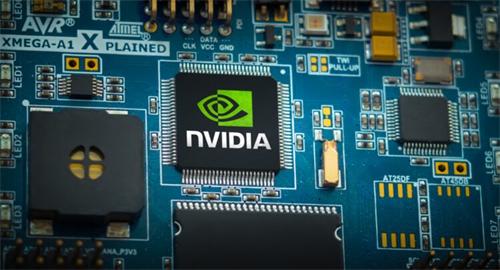Nvidia's $16B H20 Chip Rush: How Chinese Tech Giants Are Stockpiling AI Power

In the first quarter of 2025, leading Chinese technology companies—including ByteDance, Alibaba Group, and Tencent Holdings—have collectively placed orders exceeding $16 billion for Nvidia's H20 server chips. This substantial investment underscores China's intensified efforts to advance its artificial intelligence (AI) capabilities, especially in the face of stringent U.S. export controls.
DeepSeek's Influence on AI Demand
A significant catalyst for this surge in chip procurement is the growing adoption of AI models developed by DeepSeek, a Chinese startup. DeepSeek has gained recognition for its cost-effective and efficient AI solutions, which have become integral to various applications across the tech industry. The company's focus on inference optimization—enhancing computational efficiency rather than solely relying on raw processing power—has made its models particularly appealing. This approach not only reduces operational costs but also enables broader AI adoption, even with hardware limitations.
Navigating U.S. Export Restrictions
The U.S. government's implementation of strict export controls has limited China's access to advanced semiconductor technologies, citing national security concerns. In response, Nvidia developed the H20 chip, tailored to comply with these regulations while still delivering substantial AI processing capabilities. Despite these efforts, concerns have emerged regarding potential supply shortages. H3C, a major server manufacturer in China, has highlighted the risk of H20 chip shortages, which could impede AI development initiatives within the country.
Financial Implications for Nvidia
Despite facing regulatory challenges, Nvidia continues to generate significant revenue from the Chinese market. The company's ability to adapt its product offerings, such as the development of the H20 chip, demonstrates a strategic approach to maintaining its market presence in China. However, the potential for further U.S. restrictions looms, with officials contemplating additional curbs on sales of AI chips like the H20 to China.
Challenges and Strategic Shifts
The intense demand for the H20 chip has raised concerns about supply constraints. Companies like H3C have warned of potential shortages, which could hinder AI growth in China. Additionally, U.S. officials remain focused on limiting China's access to advanced semiconductor technologies, with further tariffs and restrictions under consideration. In response, Nvidia's CEO Jensen Huang has indicated plans to shift some manufacturing to the U.S., aiming to mitigate the impact of these policies.
The Role of Open-Source AI in China's Strategy
China's tech giants, including Alibaba, Tencent, and Baidu, have embraced open-source AI models, offering them freely to the public. This strategy aims to foster collaboration, accelerate innovation, and circumvent some limitations imposed by external restrictions. By promoting open-source AI, China seeks to enhance technological self-sufficiency and bolster its global reputation in the AI domain. However, this approach carries risks, such as potential revenue losses for companies and the possibility of other nations leveraging these open resources to their advantage. As the AI landscape evolves, Chinese firms may need to reassess their strategies to balance openness with commercial interests and national security considerations.
The substantial investments by Chinese tech giants in Nvidia's H20 chips reflect a strategic endeavor to bolster AI capabilities amid tightening U.S. export controls. This development underscores the critical role of AI in the global tech landscape and highlights the complex interplay between technological advancement and international policy. As China continues to navigate these challenges, the balance between fostering innovation through open-source initiatives and addressing geopolitical constraints will be pivotal in shaping the future of its AI industry.
Recommend for you:

Artificial General Intelligence by 2030? Experts Discuss Major Challenges
Ambitious predictions suggest AGI could be achieved by 2030, but experts highlight significant hurdles that may delay its realization.
Apple's 'Magic Wand' Patent: Control Devices by Waving Your iPhone
A recently granted patent reveals Apple's exploration into motion-based controls, envisioning a future where users can manipulate electronic devices through gestures made with their iPhones.
Microsoft's Copilot Avatar: When AI Gets a Face (and Why It's Terrifying Users)
This feature allows users to personalize their AI assistant's appearance, including the nostalgic return of Clippy, Microsoft's infamous paperclip assistant from Office 97.
Can Technology Save the Planet While Consuming Enormous Energy?
However, as AI continues to evolve, concerns about its environmental impact, particularly regarding energy consumption and carbon emissions, have come to the forefront.
